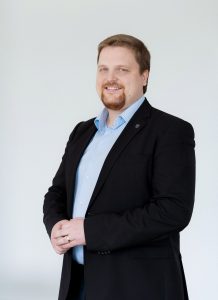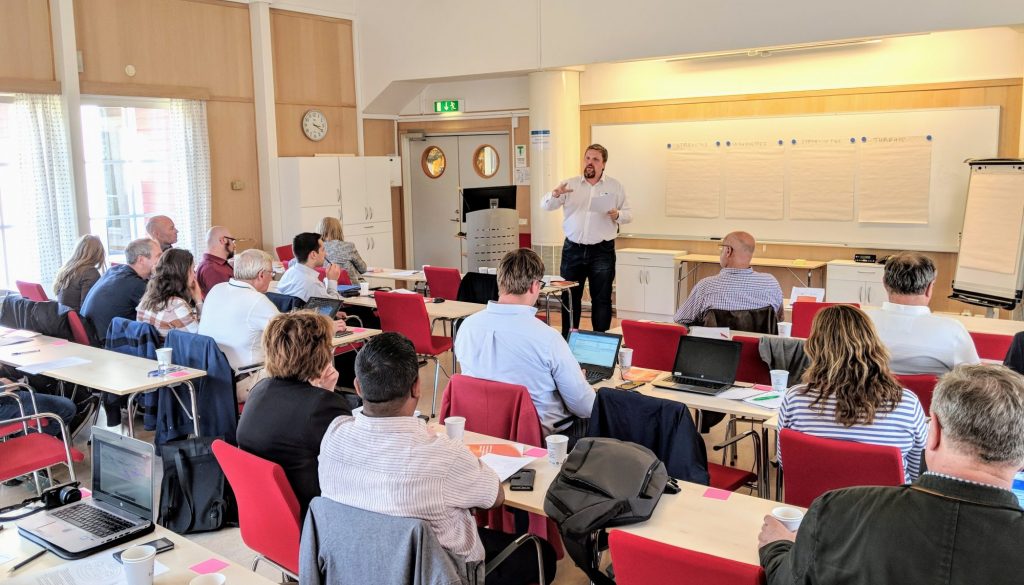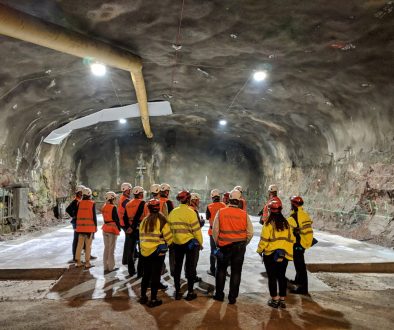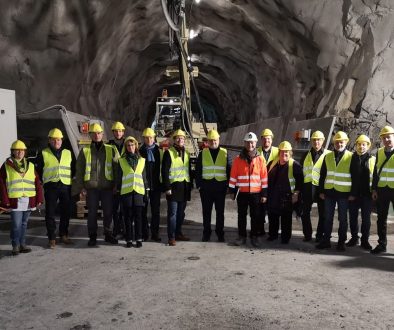Taurimas Valys: our ambition is to boost Baltic Sea Region into another economic level
Baltic Sea Underground Innovation Network (BSUIN) project involves 14 partners, 17 associated organizations, 6 underground labs and many people who share their expertise of different fields in order to reach the aim of this project – to make the underground laboratories in the Baltic Sea region more accessible for innovation, business development and science. We would like to uncover the curtain and introduce specialists who work in this project so we are presenting series of articles about BSUIN project team members.
Today we have interviewed Taurimas Valys, who is a team leader of this Project at Vilnius University Business School and is responsible for business analysis of the wholeunderground laboratories (UL) network
In your opinion, what is the biggest value of Baltic Sea Underground Innovation Network (BSUIN) project?
 Taurimas Valys: I am sure that in general this Project is generating several advantages for its partner-countries, particular regions and even entire local businesses which have been linked with the underground facilities and (or) related researches (UL installed in former mines). First of all, one of the core goals of this Project is to develop a service offering of Baltic Sea Region’s underground laboratories in order to develop their capability to offer technology transfer utilizing the facilities and research infrastructures of the ULs for business development. By implementing this aim, particular outcomes will be generated. One of the added values planned to be generated at BSUIN project is that after the overall general business analysis it will be possible to emphasize the core potential directions for the ULs further development alternatives. While generating the outcomes of the Project there is a plan to promote additional (alternative) activities in these regions. For example, some of these laboratories (ULs) and related environment is located almost 1500 meters underground. In some of them the underground tunnels consists of around 150 kilometers of high quality infrastructure with stable temperature all around the year. It can be used for different purposes such as fish/shrimp breeding, farming, saving virtual data, disposal of nuclear waste, tourism and much more. Apart from the scientific research, the ULs can provide unique environments for various businesses, such as developing technology for mining and tunnel construction equipment or radiation shielding ULs can be sites for production, which is a new and growing field especially in the production of thermal energy or facilitating food production.
Taurimas Valys: I am sure that in general this Project is generating several advantages for its partner-countries, particular regions and even entire local businesses which have been linked with the underground facilities and (or) related researches (UL installed in former mines). First of all, one of the core goals of this Project is to develop a service offering of Baltic Sea Region’s underground laboratories in order to develop their capability to offer technology transfer utilizing the facilities and research infrastructures of the ULs for business development. By implementing this aim, particular outcomes will be generated. One of the added values planned to be generated at BSUIN project is that after the overall general business analysis it will be possible to emphasize the core potential directions for the ULs further development alternatives. While generating the outcomes of the Project there is a plan to promote additional (alternative) activities in these regions. For example, some of these laboratories (ULs) and related environment is located almost 1500 meters underground. In some of them the underground tunnels consists of around 150 kilometers of high quality infrastructure with stable temperature all around the year. It can be used for different purposes such as fish/shrimp breeding, farming, saving virtual data, disposal of nuclear waste, tourism and much more. Apart from the scientific research, the ULs can provide unique environments for various businesses, such as developing technology for mining and tunnel construction equipment or radiation shielding ULs can be sites for production, which is a new and growing field especially in the production of thermal energy or facilitating food production.
The core goal of this Project is to develop a service offering of Baltic Sea Region’s underground laboratories
It must be noticed that 6 ULs are involved in the BSUIN project: Callio Lab, Pyhäsalmi mine, Finland; Äspö Hard Rock Laboratory, Oskarshamn, Sweden; Reiche Zeche, TU Freiberg Research and Education mine, Germany; Conceptual Lab development co-ordinated by KGHM Cuprum R&D centre, Poland; Khlopin Institute Underground Laboratory, Russia; Ruskeala, Russia. Above all, this project aims to create a strong regional cluster, which will be vital, efficient, and attractive for investors and end-users. We have an ambition to create a very attractive platform, which will be competitive in international level. This will help to boost Baltic Sea Region into another economic level and it will attract foreign investors, encourage regional business cooperation (synergies between international market players) and sustainable development of SMEs in particular provinces.
What is the biggest benefit of the Project for both Vilnius University and Vilnius University Business School?
This project is substantial for the entire Baltic region and we are very proud of the fact that we are a part of it. This will allow us to share our experience and initiate new ideas for generating synergies between academic and business institutions. We are sure that Vilnius University and (or) other Lithuanian scholars will be able to use current and future underground facilities of BSUIN network and generate an added value for both local start-up development / R&D processes and the Baltic Sea Region at the same time. Of course, we are very glad to have such professional partners and we hope to have more opportunities to work together.
What particular benefits the Project is generating for you personally? In your opinion, which concrete skills and (or) former experience makes the biggest added value for this Project and its participants?
By being a Team leader of this Project, and parallel a key expert in charge of the Project Business analysis, I can transfer (share) my knowledge gained after 15 + years in international financial advisory area to our partners. In particular, we speak about several groups of skills of mine, which help to achieve the Project aims and tasks. For example, various analytical skills, strategic negotiations, project management, project finance in general will definitely encourage our further participation in similar programs, assure sustainable development of regional start-ups and SMEs and, finally, it will help to build a regional cluster suitable for both international competitiveness strengthening and accelerating new mutual projects among our current (BSR) consortium partners.




